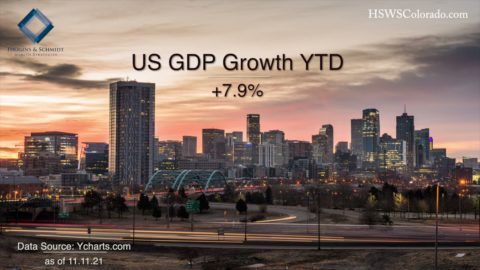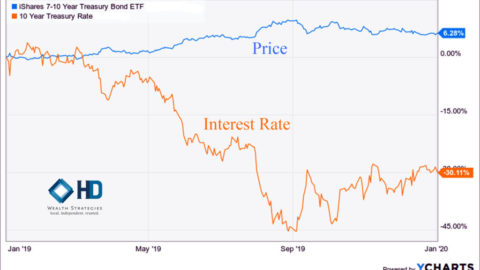Will 2020 Fiscal Stimulus Affect Future Inflation?
By: Allison Schmidt, Financial Advisor, CFP®, CPA

You’re going to start to see a theme here at HD Wealth Strategies. It’s going to pop up in our virtual meetings, our blog posts, and our phone calls, and that theme is inflation. We anticipate that the Fed’s actions (aka stimulus) in 2020 could change the trajectory of inflation.
Wait…so, how much are we talking here?
We don’t expect hyper-inflation like the decade of the 70s, where inflation was 11.24% on average each year from 1970-1980. However, we do think we’re going to exceed the 1.9% average inflation from 2010-2020*.
Time for an example…
Let’s talk morning coffee…right now a medium Americano from the Cork & Coffee here in the Highlands in Denver is about $2.65. With 1.9% inflation, it will cost $3.16 in 10 years. Compare that to 11.24% inflation, and now that same coffee costs $5.63…that’s an expensive cup of coffee!
Why the change?
We think it has to do with stimulus and how that has affected the economic measure of “cash”, M2. M2 represents cash or assets that can easily be converted to cash, such as money market mutual funds, savings accounts, etc.
This time is different…
We are not new to federal stimulus. If you remember, we had significant stimulus programs after the Great Recession that lasted through the end of 2014, but a lot of those dollars never hit this M2 line because banks didn’t lend the cash. This time, it was sent directly to mailboxes through the stimulus check (“economic stimulus payment”) to individuals and also through the PPP or the Paycheck Protection Program. We outlined the stimulus related to the Great Recession and the stimulus related to COVID 19 in the chart below…look at the dramatic increase to that money supply since the beginning of 2020. That’s more money rolling around in the economy.

So…what’s the plan?
The plan is to own things that inflate—think stocks, real estate, hard assets. In periods of inflation, it’s very important to let your assets run and lock-in any debt that floats. We find an increase in inflation even more concerning with the current yield on fixed income (i.e., bonds). If we have bonds that yield 2%, and inflation is at 1.9%, it’s not great, but at least you’re staying in one place (+.1%) and not losing buying power. Currently the 10-year treasury bond is yielding 0.73%^ per year. If we see inflation get back to average at 3%, we have a negative real return (-2.27%) and a loss of spending power. This just doesn’t work for most people.
Go on…
We think this environment should encourage all investors, especially retirees, to revisit their portfolios. The old 60% stock/40% bond portfolio of a decade ago is likely not going to cut it, the math just doesn’t work. If bonds return effectively 0%, we need the stocks of that portfolio to return 10% on average to get us to 6% for the overall portfolio. It’s tough when only 60% of the portfolio pulls any weight.
100% stock? Seems aggressive…
Yes, very aggressive and not the recommendation. We think that investors and particularly retirees need to base asset allocation on their own individual spending and not on a historic, out dated, rule of thumb. There is always a place for cash and fixed income in a portfolio, this is just not the time to intentionally or even unintentionally overweight that position.
Boil it down…
It appears, based on the M2 line, we have more money circulating in our economy. Compound that with the fact that we are emerging from the most recent recession, and have seen several businesses close their doors. So, not only is there more money circulating, there are less goods & services available. Any time you have more money chasing fewer goods and services, a likely next step is that the cost of those goods and services will increase.
Seems like now is a good time to take advantage of those cheap $2.65 Americanos and figure out what stocks to buy.
*Average inflation based on US government CPI data
^CNBC
Securities offered through LPL Financial, Member FINRA/SIPC. Investment advice offered through HD Wealth Strategies, a registered investment advisor and separate entity from LPL Financial.
The opinions voiced in this material are for general information only and are not intended to provide specific advice or recommendations for any individual. All performance referenced is historical and is no guarantee of future results. There is no guarantee that a diversified portfolio will enhance overall returns or outperform a non-diversified portfolio. Diversification and asset allocation does not ensure a profit or protect against a loss. Stock investing involves risk including loss of principal. Bonds are subject to market and interest rate risk if sold prior to maturity. Bond values will decline as interest rates rise and bonds are subject to availability and change in price. Rebalancing a portfolio may cause investors to incur tax liabilities and/or transaction costs and does not assure a profit or protect against a loss.








